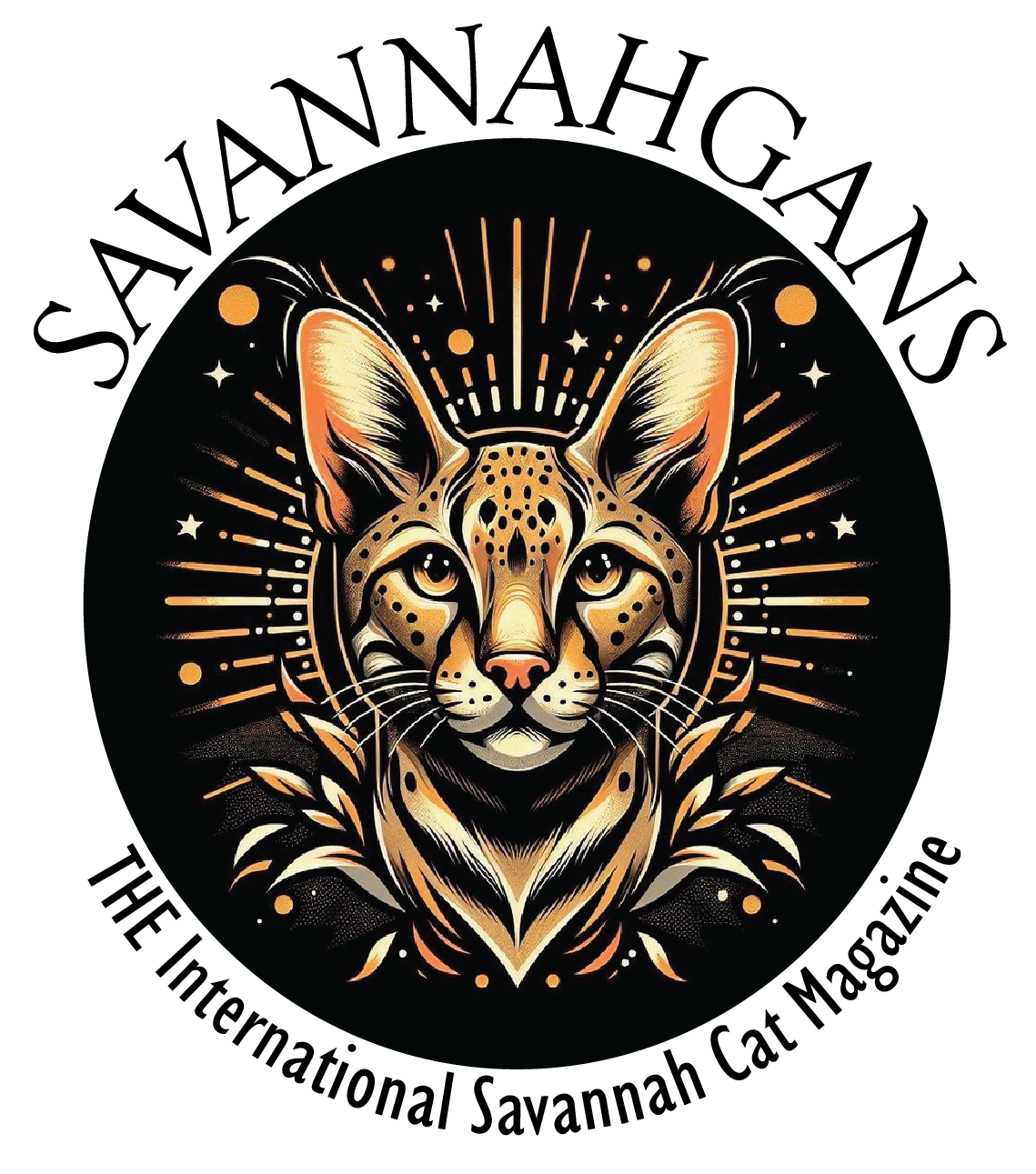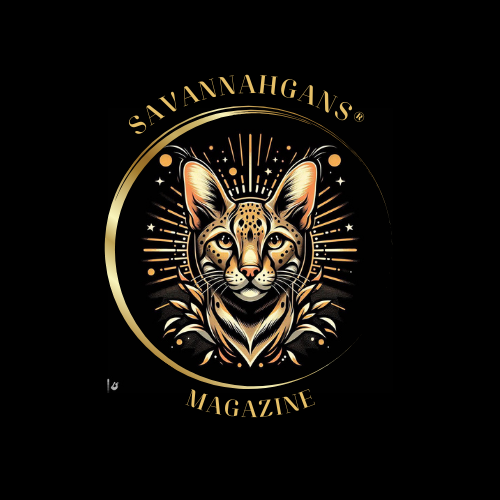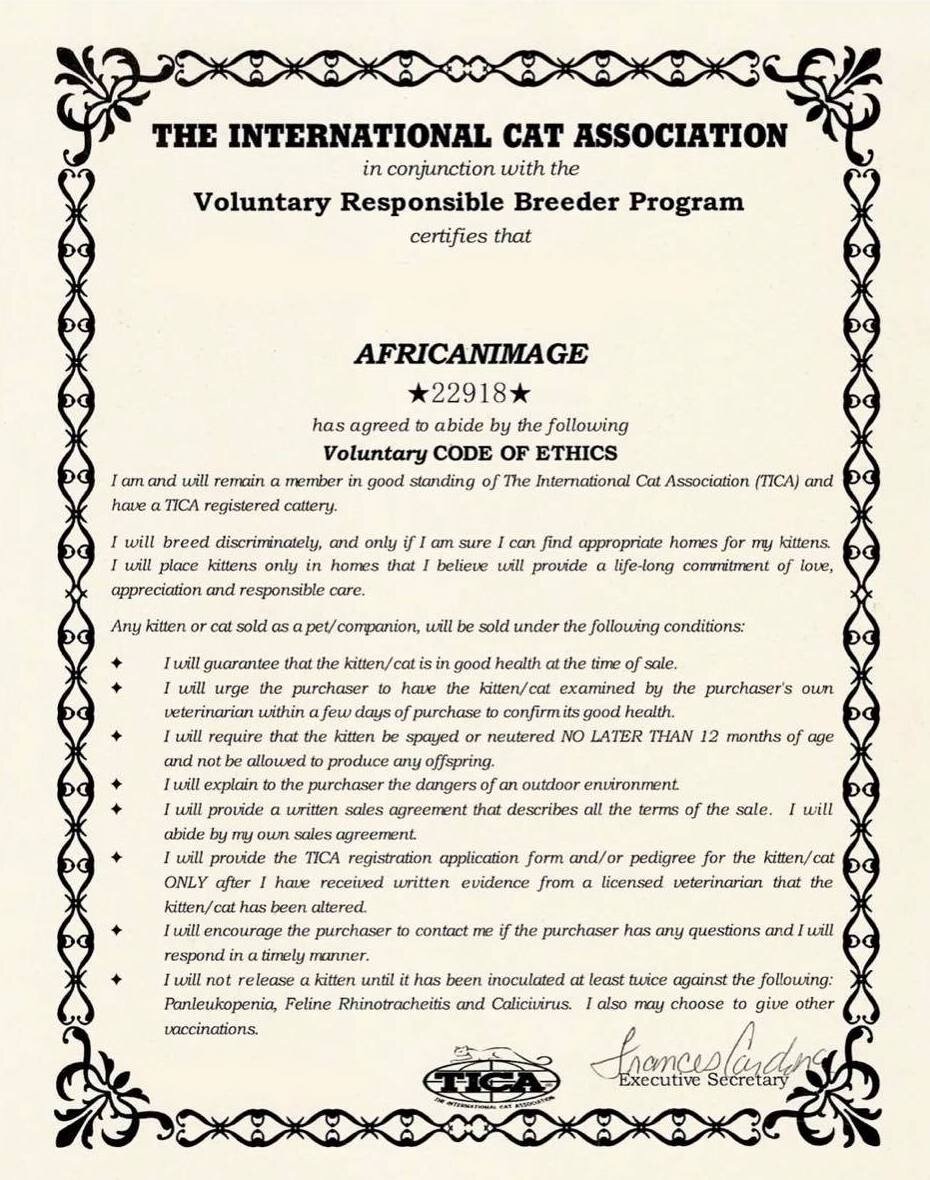Reputable Breeding and the Pledge of Ethics
Often, we as breeders must remind ourselves of the responsibilities and pledges we take when we become a breeder—an ethical breeder at that. Some subjects regarding those responsibilities need attention and to be addressed.
It seems that more and more cats appear from unregistered litters. The real question is, why aren't breeders altering their kittens before sending them to their new homes, especially when there's no intention to attribute to the breed? We must protect our lines when sending an unaltered kitten, not of breeding quality, to a new home. In certain situations where the breeder can't alter the cat before leaving for its new home, please practice due diligence and follow up with the buyer to ensure they intend to alter the kitten. Some buyers will claim they want the kitten to live a "natural life." That's where we, as breeders, must explain that it isn't cruel, nor inhumane, to alter animals. Altering the cat can decrease their risk for certain diseases and infections. And a bonus, early spay or neuter (ESN) could result in a bigger cat, a trait many buyers favor. If your buyer insists on receiving an unaltered kitten, this might indicate they intend to breed the cat. The breeder should take caution against this red flag and proceed to find another buyer.
The second subject I'd like to address are breeders that auction or offer kittens in giveaways. Not only is this behavior inappropriate, but it's highly unethical. A breeder has no control over what kind of home it'll live in with a giveaway. Our kittens aren't like makeup offered by an influencer or a piece of clothing signed by a celebrity. This cat, being made a promo item, is a living, breathing being. If you have issues finding a home for your cat or kitten, lower the price! I can't speak for other breeders, but I'm appalled by the thought of a kitten placed through a contest. Breeders work immensely hard at perfecting our lines. Is it ethical for someone to buy a cat from my line after gaining my trust, only to turn around and offer it as a promo item? All for a small gain in business and followers?
Last but not least, breeders and pet owners are calling the Savannah breed "wild animals." Breeders work diligently to identify this breed as "domestic." Using the term "wild animals" to describe our breed creates fear, and that fear is what gets our cats outlawed. It's not the type of publicity we want nor need! This issue gives the Savannah breed a bad reputation and appearance. Breeders, please stop calling these kittens "cubs." The word "cubs" is yet another reference to actual wild and big cats, which I cannot stress enough, is not what a Savannah is.
What is our breed coming to? What impression are we trying to give to our buyers? And when did breeding Savannah cats become a marketing game with taboo selling tactics? As breeders, we have a responsibility to uphold a standard and work with integrity.
Here are a few basic breeder rules:
Screen your buyers and make sure they have a safe home and environment for a cat. Ensure that your potential pet buyer has the intention of being a forever home. If you sell a cat as a breeder, be sure the buyer understands the basics and that it's in the breed's best interest rather than for financial gain.
Don't sell unaltered cats to just anyone. Get a feel for your buyer and pay attention to how they approach the breed. When some people see Savannahs, they immediately think it's a business opportunity because of a higher than the average price tag. Issues begin when the buyer no longer cares for your contract, the breed's best interest, or the kittens. Additionally, rescue cats should never be sent out unaltered.
Don't be "kitten blind." Stop selling breeding cats that have unfavorable physical & temperament traits to new or experienced breeders. Be honest with yourself on the quality aka type and resist the temptation to make extra money selling every kitten with breeding rights. Even if they're first-generation, they may not belong in a breeding program. If you don't plan to improve the breed, you have no business being a breeder. By all means, if you genuinely feel the lines behind the cat will make lovely kittens, it's understandable. Please don't sell them to new or inexperienced breeders, but instead, try the kitten within your program. Our kittens are a direct representation of our catteries, so we must take pride in what we offer. Doing so could set a new breeder up for failure with undesirable kittens and a vicious cycle of selling non-breeder quality cats to new breeders. Not every kitten will be perfect, but you should pass only the best into a breeding program.
Together, let's raise the bar for our Savannah breed!
BEFORE YOU GO, WE NEED YOUR HELP TO MOVE UP THE RANKS ON GOOGLE!
Help SAVANNAHGANS® Grow and Reach Every Savannah Cat-Owning Household! All support is humbly appreciated (visit the clickable underlined links).
Subscribe (free) (by visiting the banner on our home page) and receive each quarterly issue to your inbox.
Share this article on your own social media platforms.
Leave a Comment below. (this is VERY helpful to our growth and Google recognition)
Follow on Instagram.
Follow on Twitter.
Follow on Pinterest.
Follow on Youtube.



